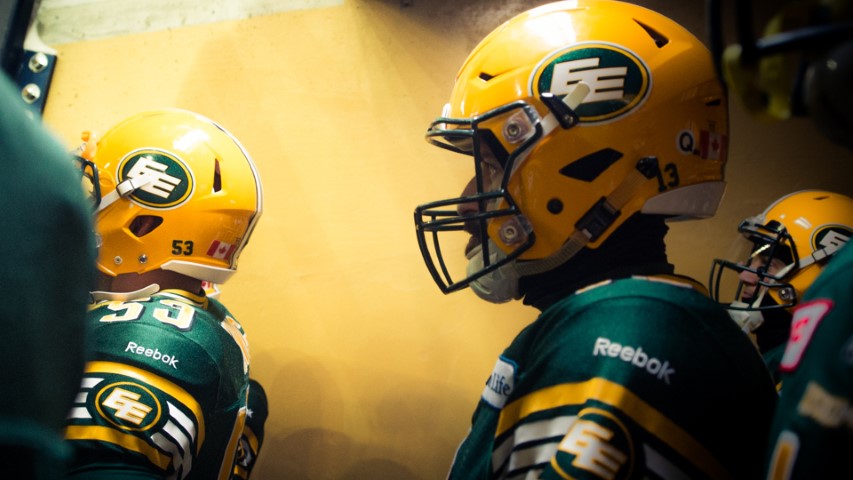
Inuit voices invalidated
By Timothy Easling, Contributor
“Growing up as a kid, I first caught on to a football game and Edmonton Eskimos were playing and I really thought it was our own team. I felt a sense of pride,” said Kenneth Ruben, of Paulatuk, N.W.T. Dominic Angutimarik from Igloolik, Nunavut, felt similarly about the Edmonton Eskimos name, conveying his thoughts originally in Inuktitut: “I wouldn’t want them to change their name simply because it’s just a title and, in fact, I feel honoured as an Inuk person to see the name Eskimos as they probably had thought that Inuit were capable people with integrity.”
It’s voices such as these that have been lost in recent times. In the dash to decry the sins of the Edmonton Eskimos, the majority of mainstream media has completely invalidated the strong feelings of pride many Inuit associate with the name.
Lorne Kusugak, a Nunavut MLA, has only fond memories of the Eskimos—first seeing them on TV in the ‘70s when his mother, Kukik Kusugak, a well-known and respected elder in the territory, came and sat down with him to see what had captured her child’s attention: “I said, ‘I’m watching the Edmonton Eskimos play the Saskatchewan Roughriders.’ Knowing as much about football as I did, she sat down and started cheering with me. I asked her, ‘Who are you cheering for?’ and she said, ‘The Eskimos because I am an Eskimo too.’”
It’s frustrating that the narrative has been shaped so as to portray the entire Inuit people as being against the name when there are clearly many who have no issue with, or even like, the name. The Edmonton Eskimos even released a survey that found among the western Arctic community, 78 percent opposed a name change; in Nunavut, 55 percent opposed a name change; and in the eastern Arctic where results identified “little connection to the team,” 31 percent oppose a name change. Jackie Jacobson, the MLA for Nunakput, was “excited” when the team had initially decided to keep its name a few months ago. “It’s a good news story. I’m a full-class Eskimo, that’s how I consider myself.”
In opposition to the survey, Nunavut MP Mumilaaq Qaqqaq wrote, “The fact that there was NO CONSENSUS means CHANGE THE NAME. I look forward to hearing from you as the member of parliament for 25 of 47 Inuit Nunangat communities.” And she pretty much echoes the narrative in most media: some of us are offended so change it. But how is that fair to those who like the name? To those who find strength in the name? To those who are happy for a positive representation? Why is one side of the argument written off just because the other feels it should be?
Because this isn’t just about removing a name. This is about imposing will. This drowns out any useful debate. If you’ve already labelled the other side as racist, and the general public comes to view that side as racist, you don’t need to have a conversation anymore—you’ve already invalidated one side. Without a word of actual discussion.
That’s why it’s so upsetting to see so many Inuit lose a symbol of strength without even a struggle. Many of their voices ignored—those who defend their viewpoint labelled as racist. Isn’t it the least bit curious how all the papers ran the survey and the results, yet only ever had quotes to support the side opposed to the name? How is it that a survey that resulted in no consensus… was frequently reported upon as if there were a consensus?
Duane Smith, chair of the Inuvialuit Regional Corporation (IRC), was clear about the organization’s stance: “The Inuvialuit Regional Corporation does not take exception to the term Eskimo as it is not derogatory in any way. It was developed by a First Nations group to describe a group of Inuit they were aware of.” The IRC is the body responsible for achieving the goals and interests outlined in the Inuvialuit Final Agreement signed in 1984—“the first comprehensive land claim agreement signed north of the 60th parallel and only the second in Canada at that time.”
The CFL is not a major sports league. If you aren’t a fan, you likely won’t encounter much, if any, of its advertising, teams, games, news, etc. A great many of those who have spoken out against the name are not sports fans. The change has minimal impact for them. On the other side of the coin are those who watch football, love the team, and have a special place for the name in their hearts. In the decision to drop the name, have those against it really won anything? Will it change anything in their life? Will they ever think about it again? The only losers in this game are the unfortunate Inuit who looked for and found value in one of their only contemporary representations.

